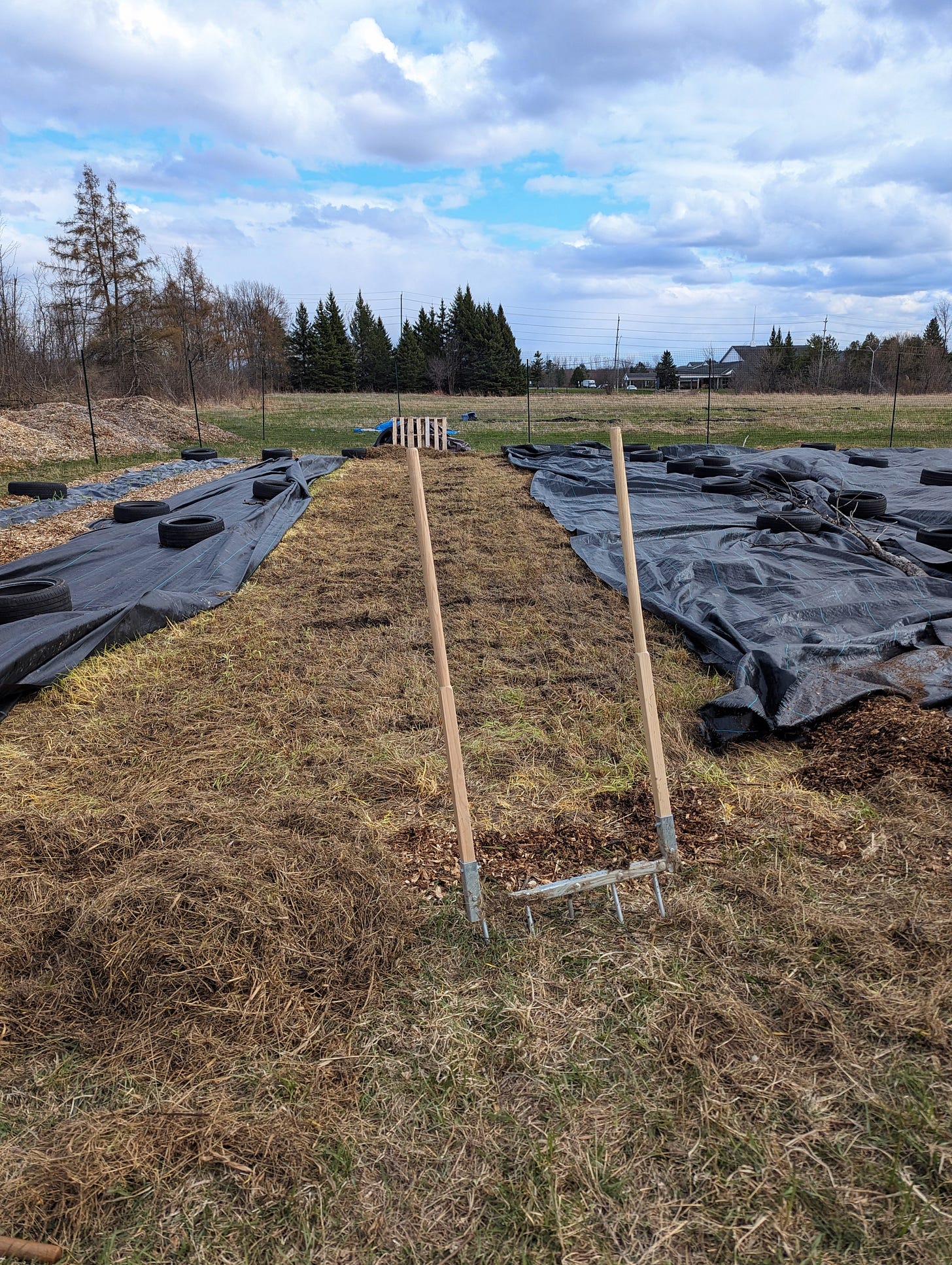#FieldNotes002: Our Mother, the Earth
Our spiritual transformation from homo sapien to homo amor
Safeguard the earth, for it is your mother who will report (to God) the good or evil anyone does on it. - The Prophet Muhammad, may the light of God continue to nourish his soul, as quoted in Nahj al-Fasahah.1
This last month, I’ve been preparing the garden beds at the Zahra Ecological Farm. After a few weeks of deliberation, I decided to follow a no-till method to ensure that the microbial life in the soil continues to thrive as we get it ready to be farmed. Preparing land for agriculture is no easy feat, and usually the simpler method is to simply till the earth. Though effective, tillage disturbs the soil food web and kills larger organisms such as earthworms, and fungi.2 A no-till system will maintain the soil food web by working with nature instead of against it.
In my last #FieldNote, I mentioned that I was reading First Principles and First Values: Forty-Two Propositions on Cosmoerotic Humanism, the Meta-Crisis, and the World to Come by Mark Gafni and Zachary Stein. Indeed, a pretty wild title that I hope to get into at a later time. At its core, the authors argue that in the midst of the metacrisis, humanity must go through a spiritual transformation from homo sapien to homo amor. The idea here is that human beings have the capacity to experience a deep love of all beings. Perhaps it is not a coincidence that Muslims start their ritual prayers with “Praise be to the Caretaker of all beings”?
A disenchanted universe leads us to apathy. Seeing the Earth as our Mother, leads us to immense love and care… homo amor. As I was working the Earth, I felt that cosmic love. Perhaps a glimpse of what it’s like to truly come to know and love the Caretaker of all beings. As a farmer, it’s starting to be clear to me that farming is, in a way an necessary unnatural process. Given our need to feed ourselves, we need to cultivate the land. Yet the very act of cultivation is violent. But I want to choose my words carefully here. By violent, I don’t mean morally wrong. Giving birth is violent. So is dying. By violent, I mean that we need to induce an amount of pain to bring about the fruits of our labour. I’m not talking about toil here. We need to afflict a certain amount pain to the Earth, in any agricultural system, to help her bear her fruits.
Let me explain.
I want you to imagine Earth’s outer layer as the layer of skin (see figure 1). Vegetation is the epidermis, protecting the inner layers. When we remove part of the vegetation, we are in a way, scarrifying the Earth. To prepare land for agriculture, this process is necessary. However, it is the way in which we execute this process that will determine whether or not long-term damage will ensue.
Once we remove the outer layer of the Earth, we must turn directly towards a healing process. Like a good surgeon, our focused now is to heal, we are now meant to plant and cover the soil with our crops. This is when the good steward follows the natural processes of forest succession (see figure 2).
The regeneration of the soil mirrors the regeneration of our skin. Our Earth Mother going through a process not unlike ourselves. As we enter a new season of gardening and farming, I invite you all to take note at how our Mother, the Earth, is giving of herself to nourish us, an awareness that fills us with love. Perhaps that is why we call her, our Mother.
I am aware this is a Shi’a source. For the sectarian Sunni, I share this hadith found in Sunan al-Tirmidhī: “Abu Huraira reported: The Messenger of Allah, peace and blessings be upon him, said, “The word of wisdom is the lost property of the believer. Wherever he finds it, he is most worthy of it.”
عَنْ أَبِي هُرَيْرَةَ قَالَ قَالَ رَسُولُ اللَّهِ صَلَّى اللَّهُ عَلَيْهِ وَسَلَّمَ الْكَلِمَةُ الْحِكْمَةُ ضَالَّةُ الْمُؤْمِنِ فَحَيْثُ وَجَدَهَا فَهُوَ أَحَقُّ بِهَا
Washington State University. "Monitoring the Mambo between Soil Biology and Tillage." Soil Health Initiative, 6 Sept. 2022, https://soilhealth.wsu.edu/2022/09/06/monitoring-the-mambo-between-soil-biology-and-tillage/.





